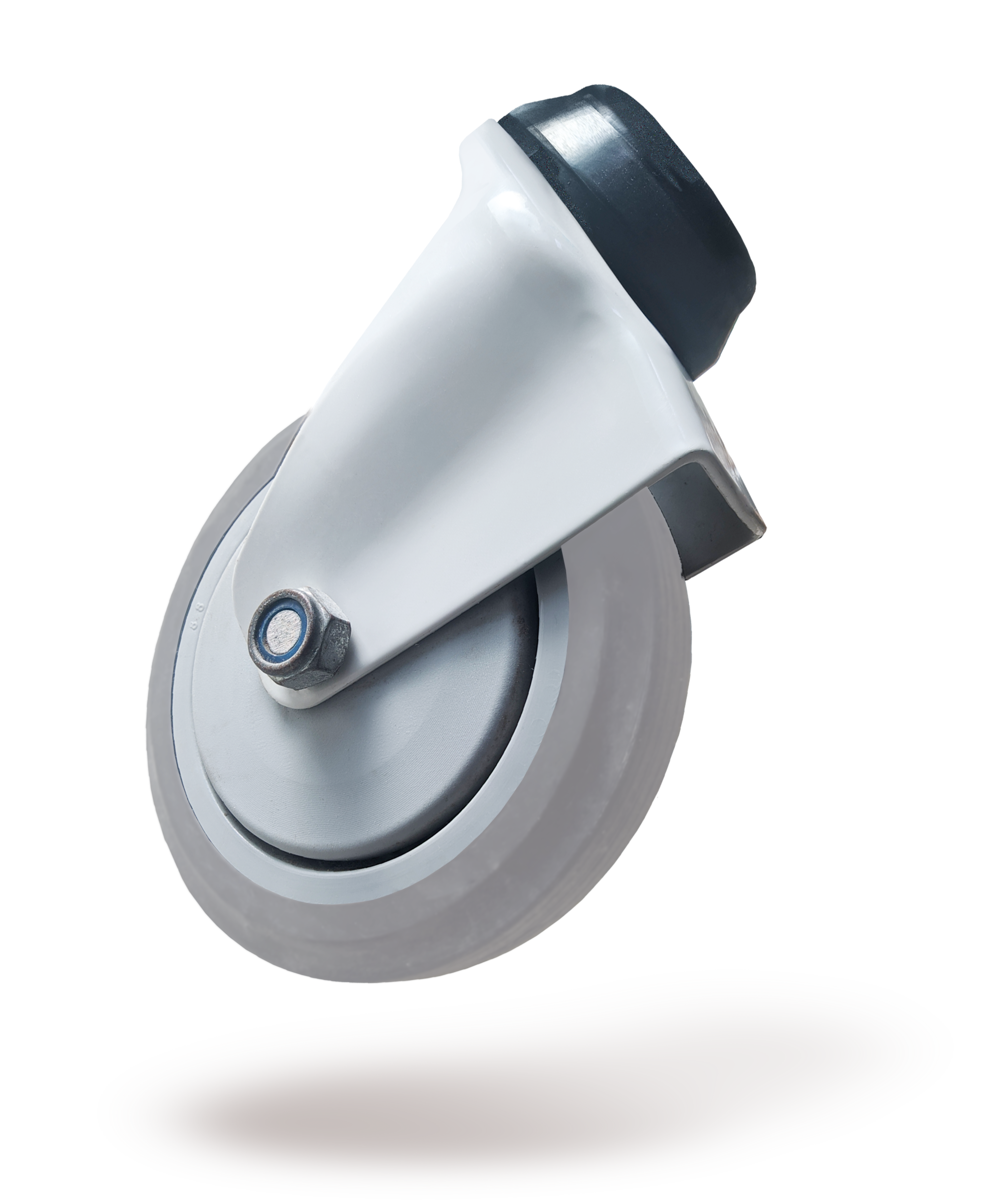PROTECTION AGAINST UNCONTROLLED ELECTRIC DISCHARGE (ESD)
with PRE-ELEC® electrically conductive plastics
Introduction to ESD
Most of us have experienced mild electric shocks, for example, when using rubber or plastic sole shoes on the wall-to-wall carpet and then touching a metal door handle. It’s uncomfortable but harmless.
But in certain environments, for example, hospitals, this can be a problem. A nurse can touch a medical device and cause it to break or malfunction because of an electric shock. The phenomenon is called uncontrolled electric discharge, ESD.
In these examples, the electric shock is caused by the shoe soles. If the material used in shoe soles is highly insulative, it will collect an electronic charge from the carpet but not release it back. It is possible, however, to make the shoe soles, or the carpet, from electrically conductive materials.

Protecting electronic components
ESD is also a recognized problem in the electronics industry. As electronic devices and their components have become smaller and smaller, their sensitivity to ESD has increased. Fragile electronics can break in manufacturing, transportation, or storage, causing enormous losses. To prevent breakage, factory floor workers can use specific clothing made from ESD-proof materials or components packaged in ESD-compatible packaging.
Electrically conductive plastics are a very versatile solution for such environments. They can be used in fibers, films, filaments, sheets, tubes, hoses, profiles, and other applications. The plastic parts and packaging can be rigid or flexible, made by injection molding or extrusion, and can be based on different polymers. The conductive plastic applications are relatively cheap, light weight, corrosion-free, and easier to produce compared to, for example, metal-based applications.
Decades of experience
Premix is a global pioneer in conductive plastic production, with decades of experience in adding carbon black to plastics (PP, PE, PS, ABS, PC, PC/ABS, PA, PBT, TPU, TPE, etc.) which adds conductivity to the naturally isolative material. Our well-equipped laboratory with lab- and pilot-scale compounding lines, plastic processing machines and analyzing devices, and a dedicated team of professionals help us create the best fit for each industry.
INDUSTRY SOLUTIONS
MATERIAL SOLUTIONS
Frequently asked questions (FAQ)
We have collected here some questions on ESD from our customers and Premix colleagues. Toni Viheriäkoski, our trusted external expert, has provided the answers. Contact us if you have any further questions!
MORE INFORMATION
ABOUT OUR EXPERT
Mr. Toni Viheriäkoski offers Electrostatics and ESD control metrology services through Cascade Metrology. His active development and research work within the ESD field have contributed significantly to the global ESD community and standardization work. Toni is a member of several working groups of IEC’s international standardization committees.
